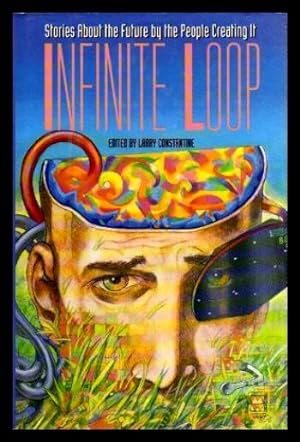Synopsis
Larry Constantine, well-known pioneer of computer software, writes science fiction. So do a lot of his colleagues, the programmers, analysts, engineers, and managers who are shaping the computer-driven future taking form in labs and programming shops around the world. This is their collection, not an anthology of "computer science" fiction, but diverse stories joined by a common thread; the desire to challenge the boundaries of human thought and to define and explore future possibilities.
You don't have to be a programmer to enjoy these stories. They're stories of human passion and revenge, of liberation and entrapment, stories of whimsy and stories of darker possibilities.
Here you'll get a fresh look at friendship through the eyes of a robot planetary explorer "programmed" to be flexible and resourceful, then sent on a long and lonely mission. You'll see corporate rivalry carried to an imaginative new plane. You'll listen in on the angst-ridden philosophizing of a biotech computer and play games with a zoo-full of animals that are not what they seem to be. You'll step into the shoes of some of tomorrow's harried parents reaching for a technological fix for impossible demands of jobs and children. You'll search for love and fulfillment when any fantasy can be made virtual reality and companionship comes in the shape of a computer - for a fee, of course.
Reviews
Of the recent slew of gimmick SF anthologies, this one, by professional computer programmers and software developers, is well worth scanning. It would have been much improved, however, had first-time editor Constantine trimmed the ancillary material he appends to each story, hyping the writers and their work. The names here likely to be familiar--Steve Rasnic Tem, Pati Nagle, P. J. Plauger--present the most accomplished stories, though not always the most effective. For that look to Colin J. Robey's "Flickering Lights," about computer viruses; Sandy Stewart's "The Lion and the Snake," in which human intelligence is downloaded to a computer; Nagle's "Pygmalian 3.0," about simulated intelligence; Sonia Orin Lyris's "The Animal Game," which explores game-playing in cyberspace; and Brian A. Hopkins's "My Father's House," whose characters are a group of colonists in space. Of the 24 contributors, 12 appear with their first science fiction sales, including Plauger's first story, "Wet Blanket," which was published in Analog 10 years ago.
Copyright 1994 Reed Business Information, Inc.
"About this title" may belong to another edition of this title.
